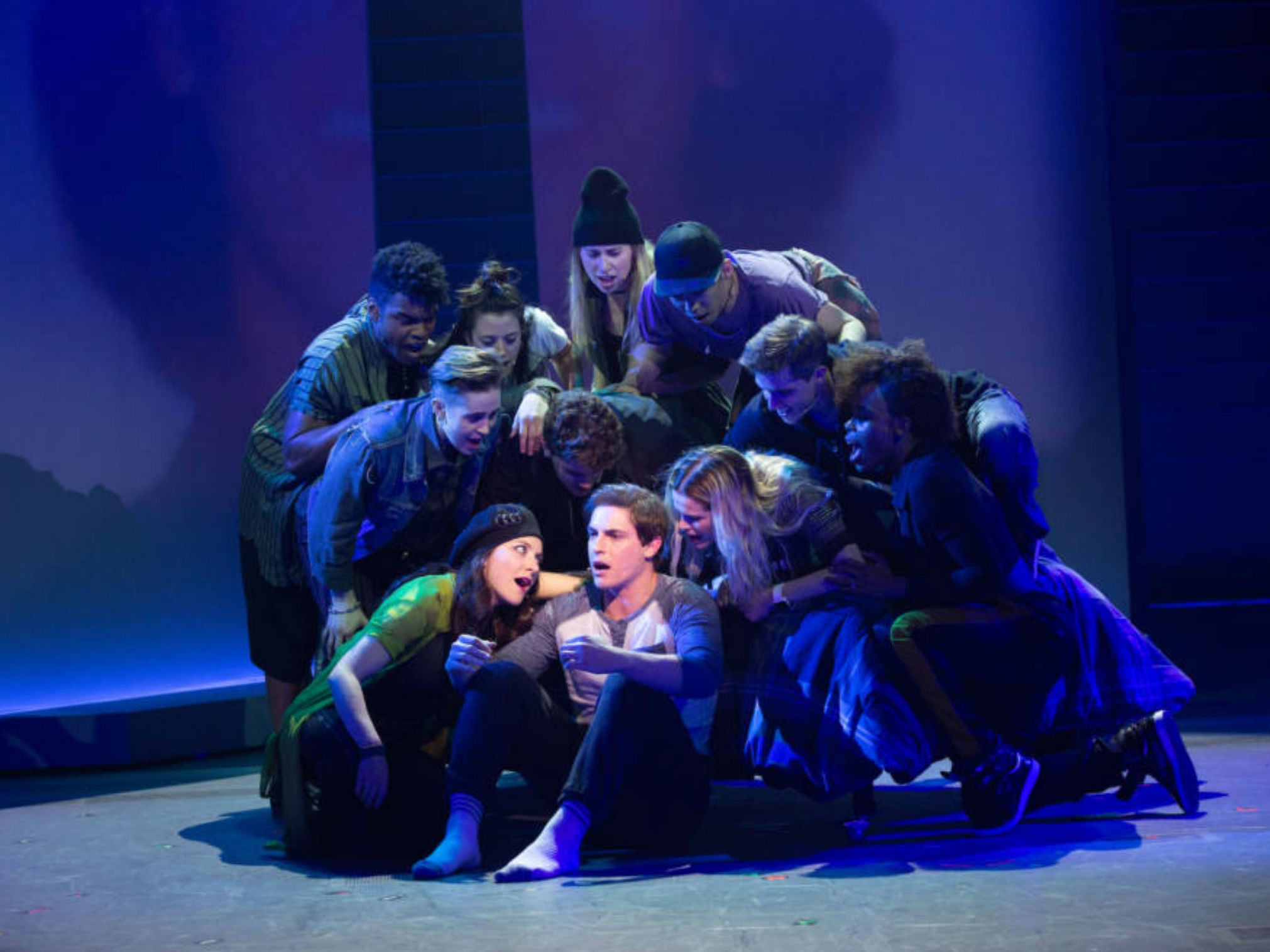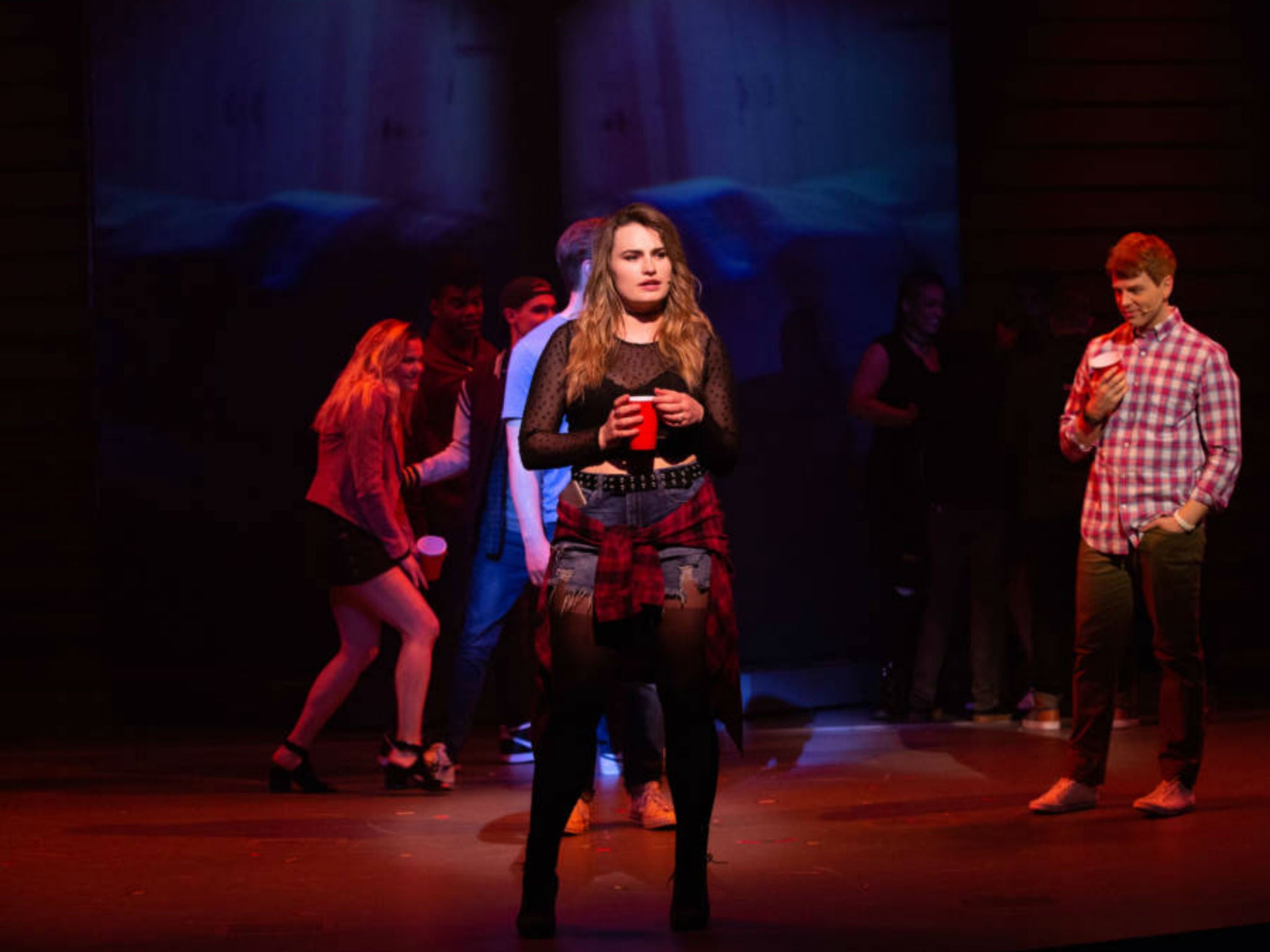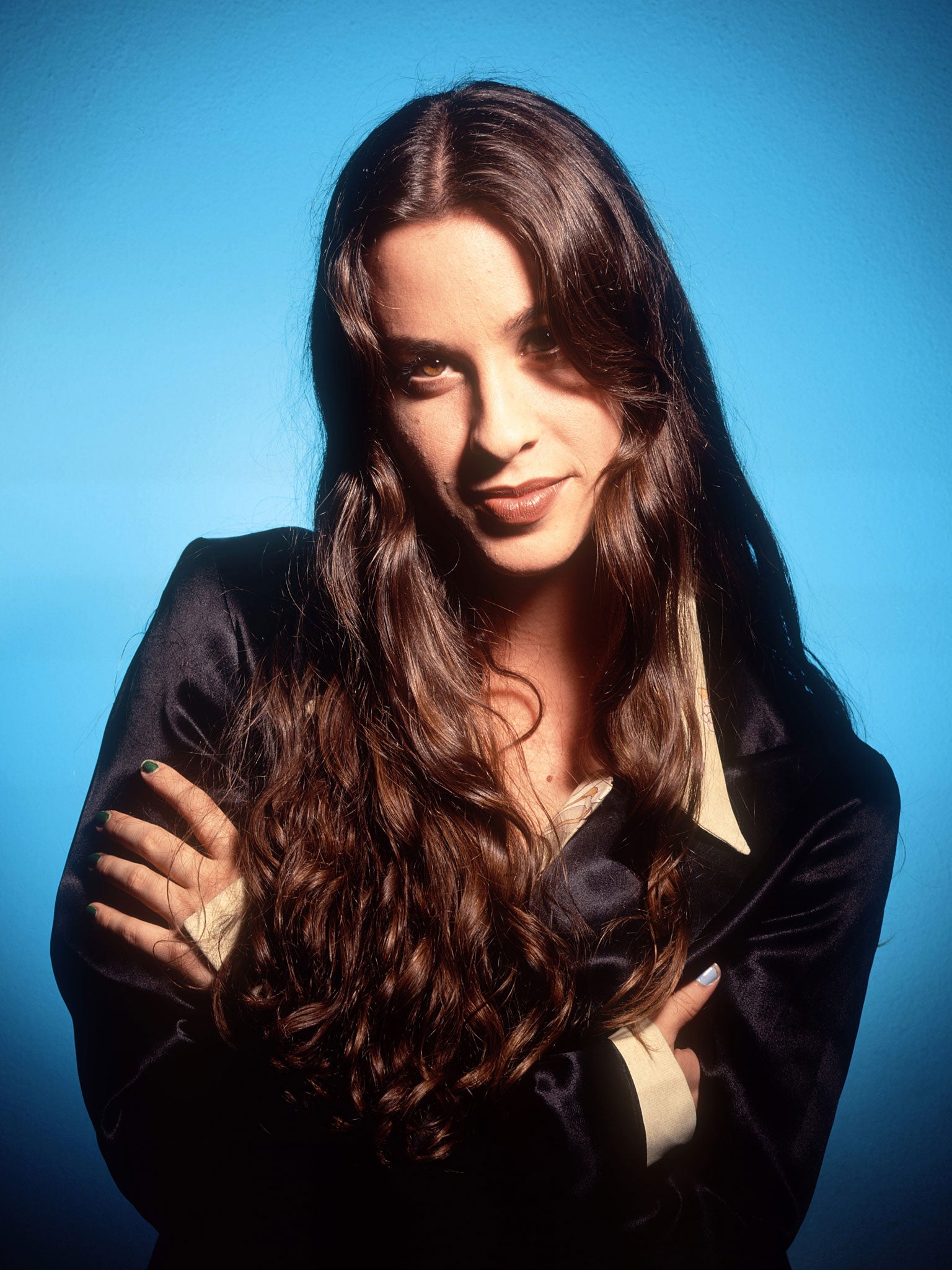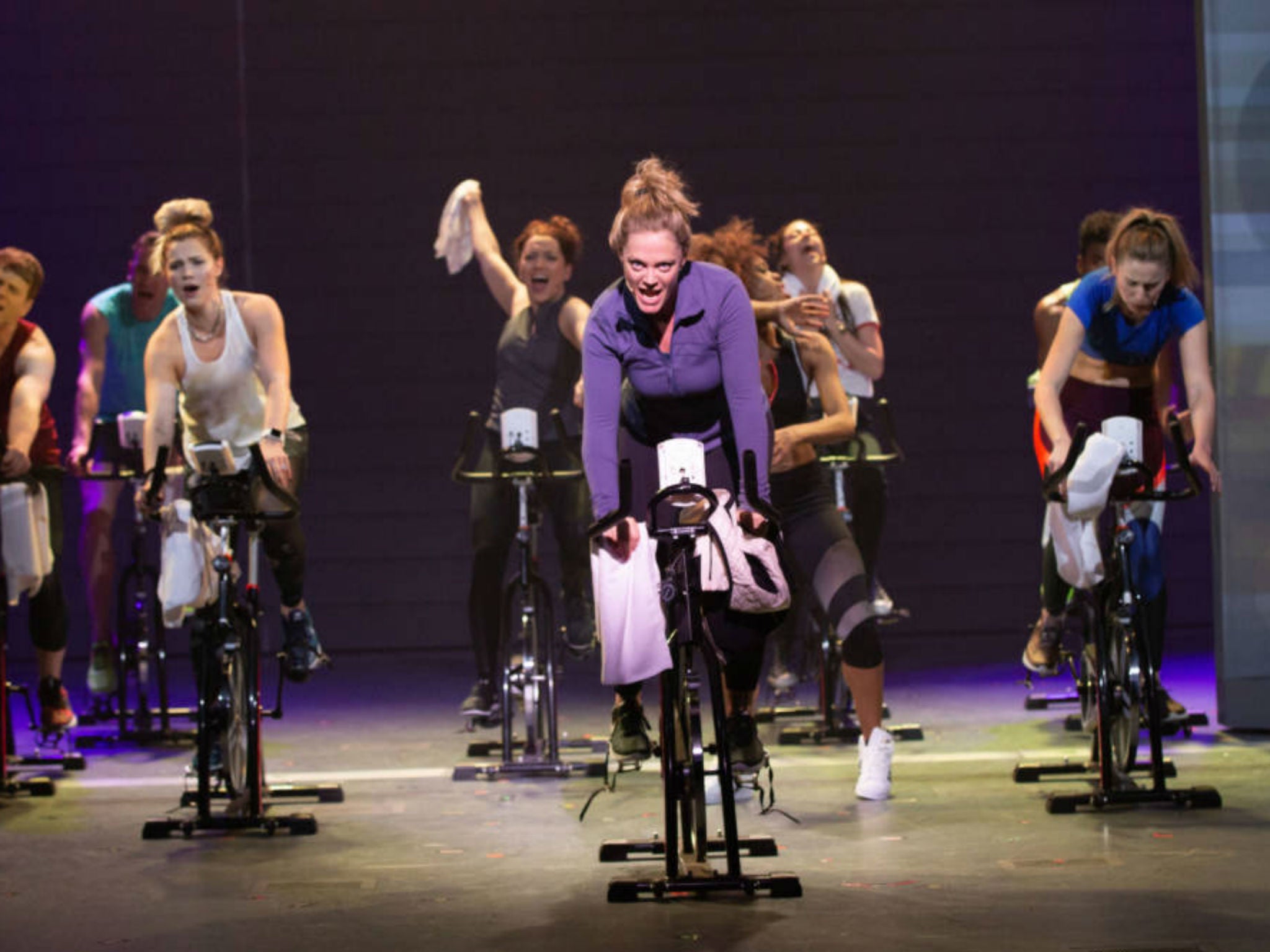Isn't it ironic? Alanis Morissette's Nineties songs speak for today in brand new musical
An A-list team – including scriptwriter Diablo Cody and director Diane Paulus – is determined to make Jagged Little Pill more than just a juxebox musical

Your support helps us to tell the story
From reproductive rights to climate change to Big Tech, The Independent is on the ground when the story is developing. Whether it's investigating the financials of Elon Musk's pro-Trump PAC or producing our latest documentary, 'The A Word', which shines a light on the American women fighting for reproductive rights, we know how important it is to parse out the facts from the messaging.
At such a critical moment in US history, we need reporters on the ground. Your donation allows us to keep sending journalists to speak to both sides of the story.
The Independent is trusted by Americans across the entire political spectrum. And unlike many other quality news outlets, we choose not to lock Americans out of our reporting and analysis with paywalls. We believe quality journalism should be available to everyone, paid for by those who can afford it.
Your support makes all the difference.Everyone seems to have a story about hearing Alanis Morissette’s Jagged Little Pill for the first time.
Writer Diablo Cody was listening to the radio when a DJ said: “This is going to be huge.” Composer Tom Kitt was in college, feeling as if the whole world had stopped. I was a kid who got grounded for accidentally saying the F-word while singing along to “You Oughta Know”.
The album’s parade of fearlessly raw hits was as integral to Nineties pop culture as AOL promo discs and Dr Martens. Its success vindicated Morissette, who was previously rejected by radio stations saying they didn’t need another woman after Sinead O’Connor and Tori Amos.
“For those in the patriarchy who thought women were not bankable,” she recalled in a recent interview, “that went out the window.”
Now Morissette’s trailblazing 1995 album is taking on new life: as theatre. And don’t expect a fun, nostalgic jukebox musical about the Nineties. Jagged Little Pill, which runs at the American Repertory Theater in Cambridge, Massachusetts on 15 July, is very much of the present and may just be the most woke musical since Hair.

The show tackles hot-button issues such as opioid addiction, gender identity and sexual assault, as well as more quietly urgent ones like transracial adoption, marital bed death and image-consciousness. It also contains imagery from the Women’s March and the #NeverAgain gun-control movement. Picture a pageant of liberalism, with your favourite Nineties songs as the soundtrack.
“Alanis’ songs were written 23 years ago,” said Kitt, the production’s music supervisor and the composer of the Pulitzer Prize-winning musical Next to Normal. “But they feel like they were written yesterday. These are all human issues that we’ve been dealing with for years.”
To pull off what may risk coming off as heavy-handed, American Repertory has assembled a team of A-list collaborators in addition to Kitt and Morissette: Tony Award-winning Diane Paulus, the company’s artistic director; choreographer Sidi Larbi Cherkaoui; and Cody, the screenwriter of Juno fame, who wrote the book. The unsung hero, they all said, is Lily, a French bulldog puppy that has become the production’s de facto therapy dog.
“When you’re dealing with an album that has such meaning for people, you have to respect that,” Paulus said. “We know people are going to expect some sonic universe and emotion. But if we do our job right, people are going to think: I’ve never heard these songs like this.”

The songs, which also include Morissette tracks outside Jagged Little Pill, are convincingly theatrical in the context of the musical, which may be a surprise considering the material comes from two outsiders; Cody didn’t even take an academic stab at dramatic writing while growing up, she said.
“I don’t think I ever had the confidence in my younger years to say I could tell a story on the stage,” she added. “I was never an assured creator. I didn’t think I had anything to contribute.”
But Cody’s book for Jagged Little Pill — which strips away the picture-perfect veneer of a Connecticut family over the course of a year — is unapologetically on brand: by turns bitingly satirical, touching and frank. In fact, it may even be a more honest reflection of her writerly mind than we typically get onscreen.
“I come from a world of parent companies and advertisers and suits and caution,” she said. “If I want to express a belief of my own, I’m asked to temper it so that we don’t alienate anyone. This is the opposite.”

If there is anything keeping Cody’s book in check, it’s the music itself. But part of her task has been to twist the poetic ambiguity of Morissette’s lyrics in the service of an original story. That means framing “Mary Jane” as a husband’s whisper over his wife’s hospital bed, or “One Hand in My Pocket” as musical theatre’s prototypical “I want” song.
But sometimes the production leaves Morissette’s cherished music alone: The staging for “You Oughta Know”, sung by scene-stealing Lauren Patten, is so spare it could just as easily be an intimate concert. At the performance I attended last week, Patten’s “You Oughta Know” stopped the show with a minutes-long standing ovation. I was told that this has been happening every night since previews began on 5 May.
“Ironic” is sung in the context of a high-school writing workshop and the scene makes a joke about the elephant in the room: decades of pedants nitpicking the song’s misuse of the word “ironic”.
“I’m probably laughing the hardest in the audience,” Morissette said, adding that when she worked on the song with songwriter and producer Glen Ballard, “we didn’t give a **** about the malapropism”.
She also didn’t think many people would even hear it. But once “Ironic” became a hit, there were entire website forums dedicated to shaming the song and — in true internet fashion — thinking of ways to murder Morissette.
“I naively thought fame would be me kumbaya-ing with Johnny Depp lying on my lap at a campfire and Sharon Stone offering me a drink,” she said. “It was the complete opposite, totally isolating. I just stopped reading any comments.”
The vibe behind the scenes of the musical is, like its material, inclusive and socially aware. Early in the rehearsal process Paulus asked everyone in the cast to give a presentation on a topic from the show. Celia Gooding (daughter of current Tony nominee LaChanze) — who plays the queer, protest sign-toting daughter Frankie — spoke about colourism, a form of discrimination based on skin colour that transcends race. And Elizabeth Stanley (On the Town), who plays her mother, chose to research transracial adoption.
“Everyone shared really vulnerable personal stories,” Stanley said. “It forced us as a company to be gentle with each other.”
Members of the cast and crew have also been one another’s shoulder to lean on amid what Paulus called “the last two years of major trauma in America,” which shaped Jagged Little Pill throughout development.
Some material has even gone straight from headlines to the stage, like a sobering moment in “All I Really Want” when the song suddenly stops — leaving the audience with the tableau of Frankie holding up a #NeverAgain against a backdrop of images from the Parkland student protests.
Paulus’ inspiration for moments like this is Hair, which she directed for Shakespeare in the Park, and later Broadway, nearly a decade ago.
“They were reflecting in real time what was happening in the world,” she said of that show’s original production, in 1967. “Guys were getting their draft cards delivered to the stage door; it was that real.”
With that in mind, the version of Jagged Little Pill I saw could change tomorrow. It could even be a different show if it were staged on Broadway, as many of her American Repertory productions are.
“I feel like theatre is all about the present,” Paulus said. “When and if we get another shot at this in the future, I’m sure things will change.”
But, she was quick to emphasise, any revisions based on current events would have to take their lead from Morissette’s music and lyrics — which, she added, actually provide a hopeful outlook in the age of bleak push notifications.
“The pain and anger of my songs are all on this spectrum,” Morissette said. “The darker the song is, the more that hope is just this pilot light that was there the whole time.”
‘Jagged Little Pill’ runs until 15 July at the American Repertory Theater, Cambridge, Massachusetts.
© The New York Times
Join our commenting forum
Join thought-provoking conversations, follow other Independent readers and see their replies
Comments